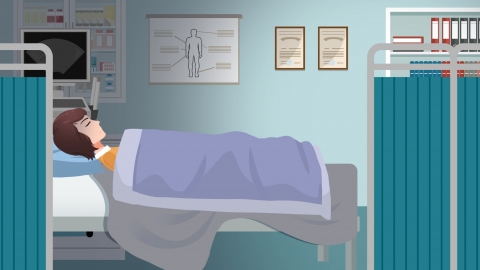What should I do if there's a sore and itching down there?
Itching and breakdown in the affected area may be caused by improper cleaning methods, clothing material irritation, vulvitis, bacterial vaginosis, or vulvar eczema. Symptoms can be improved by adjusting hygiene habits, changing clothing, or using medication. If symptoms persist for more than three days or are accompanied by pain or abnormal discharge, prompt medical attention is necessary.
1. Improper cleaning: Excessive use of alkaline cleansers or vigorous wiping can damage local skin and mucous membranes, leading to breaks and itching. It is recommended to wash with warm water, avoid frequent use of cleansing solutions, and gently pat the area dry with a soft towel.
2. Clothing material irritation: Wearing synthetic or tight-fitting clothes reduces breathability, causes friction against the skin, leads to skin damage, and trapped sweat worsens itching. Switch to loose-fitting cotton clothing, change and wash regularly, and keep the area dry.

3. Vulvitis: Infection by pathogens or exposure to irritants can cause inflammation of the vulva, resulting in skin breakdown and itching, often accompanied by redness, swelling, and a burning sensation. Under medical guidance, use medications such as potassium permanganate solution, metronidazole gel, or clotrimazole cream to relieve symptoms.
4. Bacterial vaginosis: Imbalance of vaginal flora leads to excessive bacterial growth; vaginal discharge then irritates the vulva, causing skin breakdown and itching, often with a fishy odor. Under medical guidance, use medications such as metronidazole suppositories, clindamycin phosphate suppositories, or tinidazole tablets to manage symptoms.
5. Vulvar eczema: Moisture, allergies, or other factors may trigger vulvar eczema. When rashes break open, intense itching occurs, and scratching can worsen skin damage. Follow medical advice to use hydrocortisone cream, tacrolimus ointment, loratadine syrup, or other prescribed treatments to alleviate symptoms.
Maintain local cleanliness by washing with warm water, wear breathable cotton clothing and change it frequently, follow a light diet avoiding spicy foods, and avoid scratching to prevent worsening skin damage—these measures help relieve symptoms and support skin healing.




